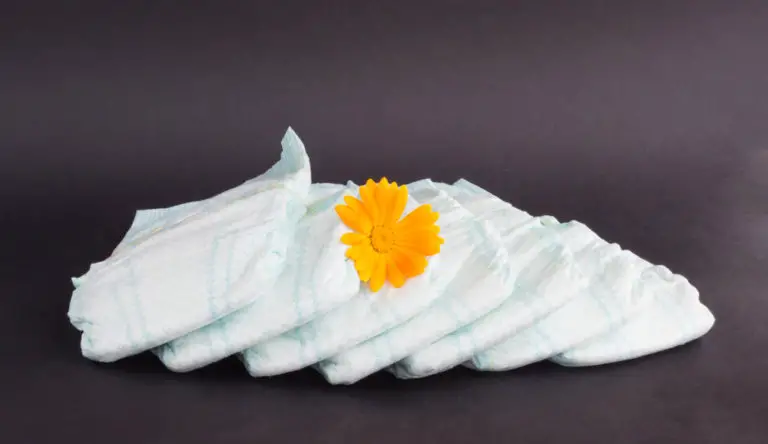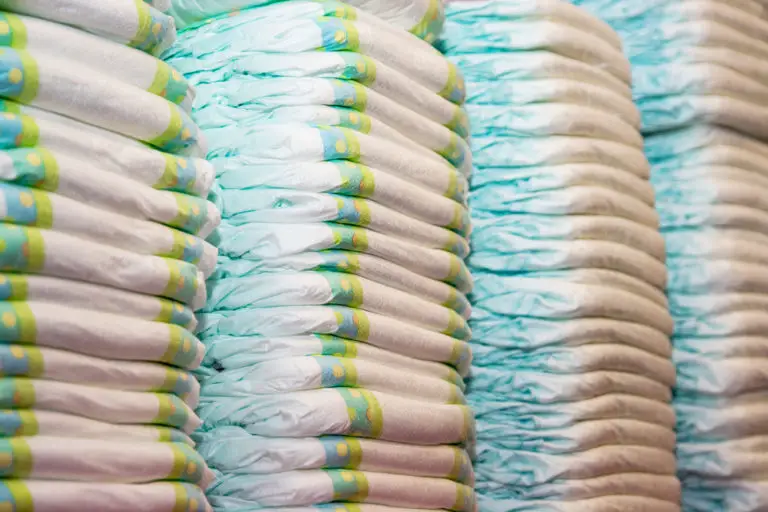15 Real Benefits of Cloth Diapers That Matter the Most (2024)
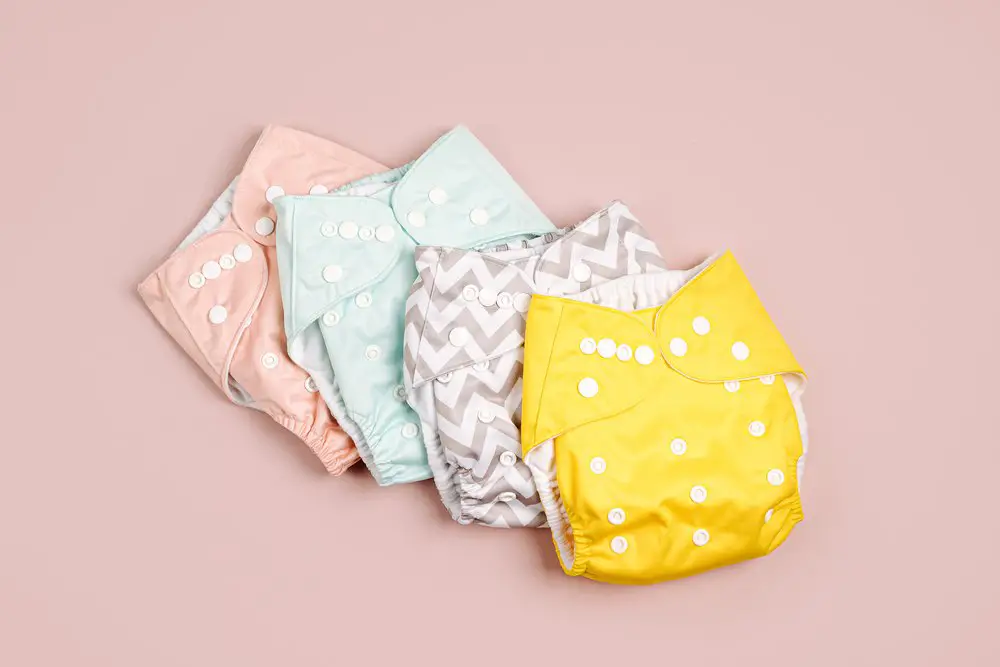
Deciding to use cloth diapers is a major decision, perhaps one of your very first in parenting. The good news is that the benefits of cloth diapers are real and tangible.
Cloth diapers not only save you money and look adorable but have a positive environmental impact.
- Cheaper Than Disposables
- Environmentally Friendly
- Don’t Have That Strong Chemical Smell
- Reduces Baby’s Exposure to Chemicals
- Causes Less Diaper Rash and Leaks
- Come in a Variety of Fabrics
- Cuter than Disposables
- Support Early Potty Training
- More Comfortable Than Disposables
- You Never Run Out of Diapers
- Catches More Blowouts
- Protect Baby Boys’ Privates
- Solids Ends Up in the Right Place
- Have Multiple Uses
- Diaper Service is a Lifesaver
Benefits of Cloth Diapers
1. Cloth Diapers are Cheaper Than Disposables
It may not seem like it upfront, but one of the advantages of cloth diapers is that they are cheaper in the long run.
There is some variation in the math, but most estimates agree that parents will spend somewhere between $2,000 to $3,000 on disposable diapers from birth to three.
And, that number is only if your baby is potty-trained magically on their third birthday. I can tell you from experience as a mom and a preschool teacher; most aren’t.
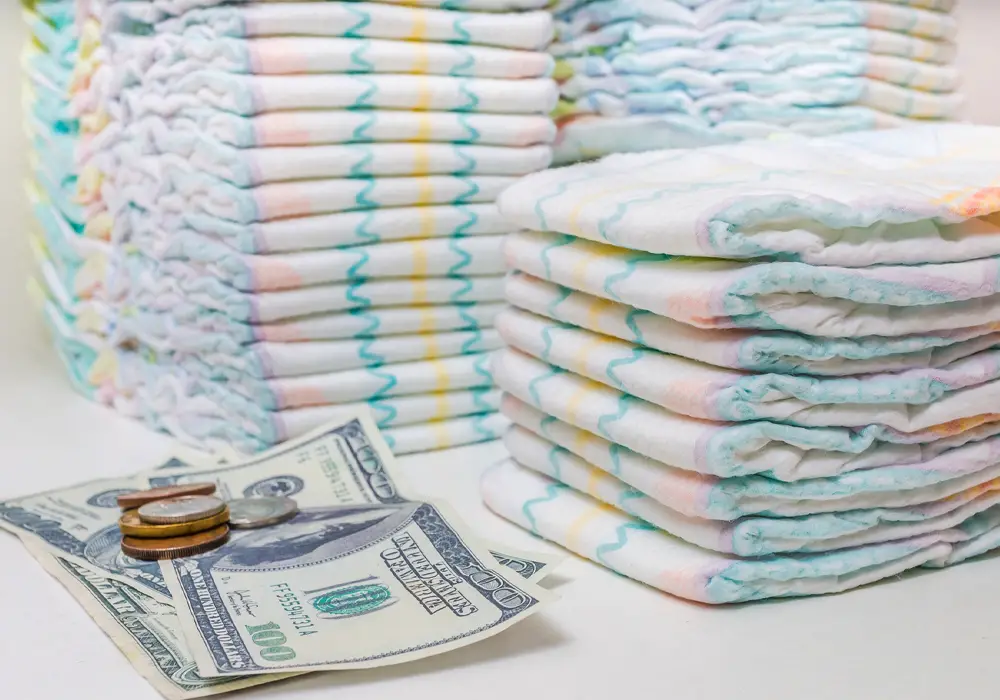
Here’s how the disposable diapers rack up the dollars. A baby is changed 2-3 times daily, a toddler 3-4 times. That totals roughly 70 diapers a week! 70 diapers a week multiplied by 156 weeks (or three years) is a whopping 10,920 diapers.
The average mid-range disposable diaper is $0.24 apiece. Your total? $2,620.80. And that is before you throw in disposable wipes and disposable can liners.
On the other hand, reusable diapers can be as little as $300, although most estimates range between $600 and $1000. Still significantly cheaper than disposables. The lower cloth cost is one of the main reasons I used them for my son!
Also read: 15 Disadvantages of Cloth Diapers
2. Cloth Diapers Are Environmentally Friendly
Another reason why cloth diapers are an excellent choice is that they are better for the environment than disposables. The United States alone is responsible for depositing over 49 million disposable diapers a day into landfills.
Most sources agree that it takes 500 years for a single disposable diaper to decompose. That means every single disposable diaper that has ever been used is still in a landfill.
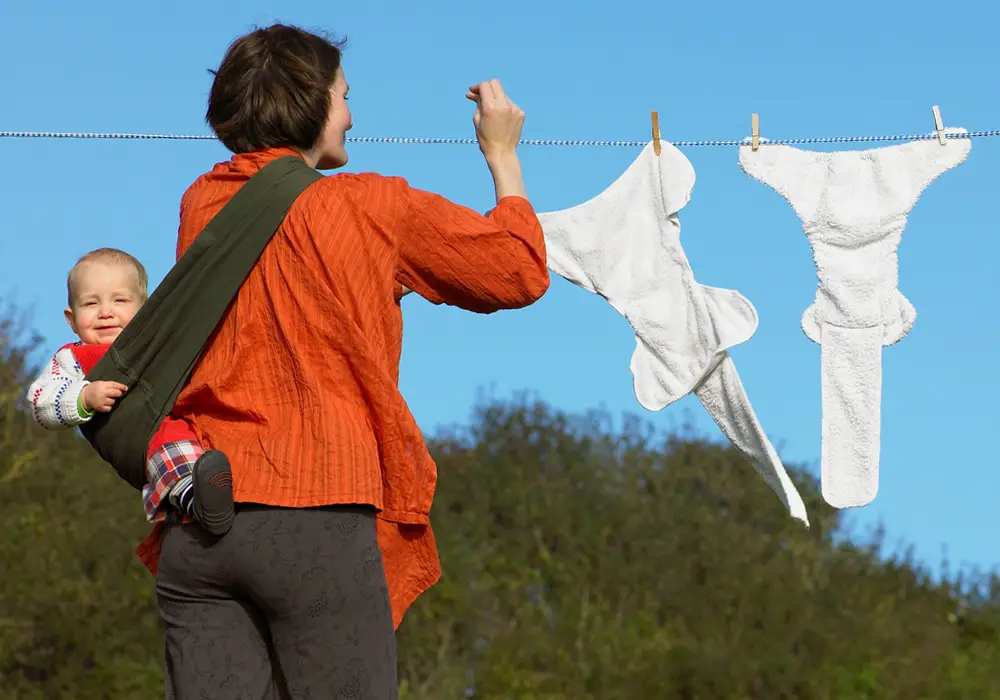
The EPA also released a study showing that the chemicals and plastics used in disposable diapers are harmful to the environment. The average child uses roughly 8,000 diapers in their life.
Considering how the length of time diapers decompose and diapers’ environmental impact on the soils and water, using cloth diapers is definitely the more eco-friendly choice. (1)
3. Cloth Diapers Don’t Have That Strong Chemical Smell
Diapers smell when they’re soiled in, it’s true, but have you ever noticed the strong chemical smell that comes from a disposable diaper once it’s wet?
Disposable diapers are filled with a polymer called sodium polyacrylate. This polymer is incredibly absorbent, which is why it works so well in whisking wetness away.
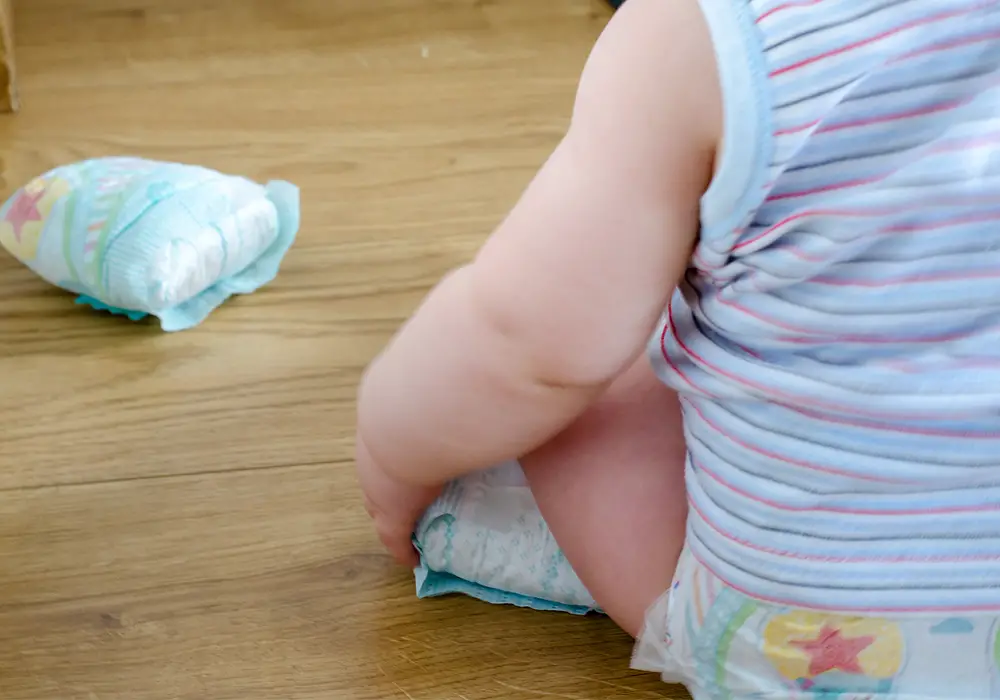
But it also has an odor from the urine and polymer’s chemical reaction. Disposables can also hold a lot of urine, so if the diaper isn’t changed promptly, the smell grows.
Cloth diapers won’t have this odor since the urine is mixing with a natural substance, just one of the many washable diaper benefits!
Of course, no diaper is smell-free, and poop and pee will have odors, but by using organic cloth diapers, you prevent that overtly chemical smell around your baby.
4. Cloth Diapers Reduce Baby’s Exposure to Chemicals
Ever wonder why a disposable diaper can absorb 100 times its weight? It’s because it is filled with chemicals and non-natural substances. Do you really want all those chemicals on your baby’s delicate skin?
The main absorber in disposable diapers is polyacrylate or water lock, which has been proven to be non-toxic and safe for skin. Still, it is only one of many things inside a disposable diaper.

Research performed in France discovered sixty different chemicals in disposable diapers, including some banned from use in the country for quite some time.
One of those chemicals is the herbicide glyphosate which has been linked to many health issues. (2) Disposables also contain chlorine which can strip a baby’s skin of good, natural bacteria and affect their skin’s ph levels.
5. Cloth Diapers Cause Less Diaper Rash and Leaks
When my son used cloth diapers, he had very few diaper rashes. That’s because fabric diapers’ lining is more natural and therefore better for a baby’s bottom.
When cloth diapers are the correct size and worn correctly, they are great at reducing leaks!
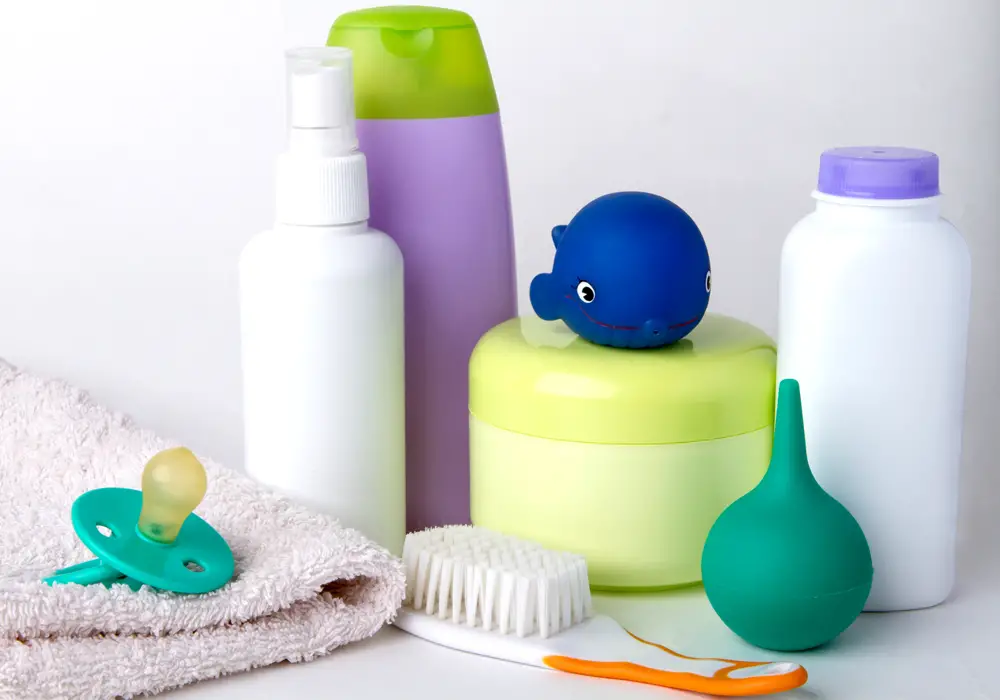
One downside to using cloth diapers is that you cannot use standard diaper cream.
If your baby does develop a cloth diaper rash, which is unlikely, you will need to do some research to discover which type of diaper cream is safe for your brand of cloth diapers.
You can also use a disposable liner when using cloth diapers to help protect against the residue from diaper creams. This way, most of the cream goes on the liner, which you can simply toss.
6. Cloth Diapers Come in a Variety of Fabrics
One of the pros of cloth diapers these days is that they come in so many different fabric styles.
No longer do moms and dads have to deal with intricately folding pieces of fabric so they perfectly fit your baby’s bottom. Now, you can choose from multiple styles and fabrics.
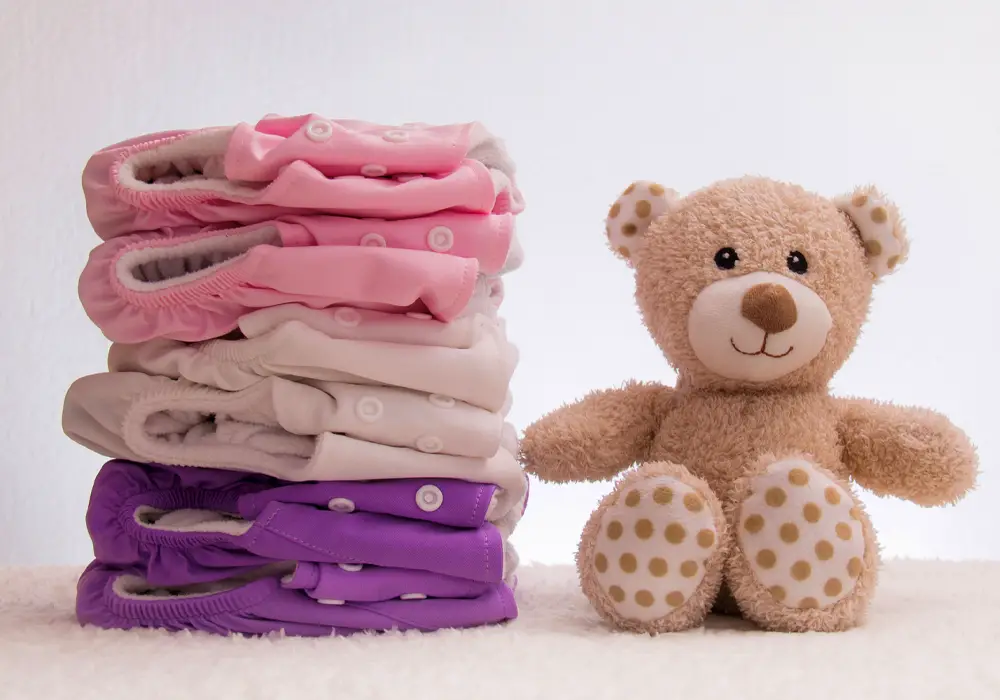
Today’s reusable baby diapers are made out of bamboo, cotton, hemp, organic cotton, modal, fleece, wool, and polyester. Some cloth diaper companies use a blend of these fabrics.
Modern cloth diapers also use various snaps and closures, including velcro, snaps, and pre-formed ones that slip on and off.
You may want to think about the style of closure if you plan to do cloth diaper potty training. You will want your toddler to be able to take their diaper off by themselves as they become more independent.
7. Cloth Diapers are Cuter than Disposables
Yup, I said it; cloth diapers are the cuter option.
And while that shouldn’t be your sole reason to put your baby in cloth diapers, it’s definitely something to consider. Just like the clothes we put our baby’s in, their diapers can reflect personality and style.
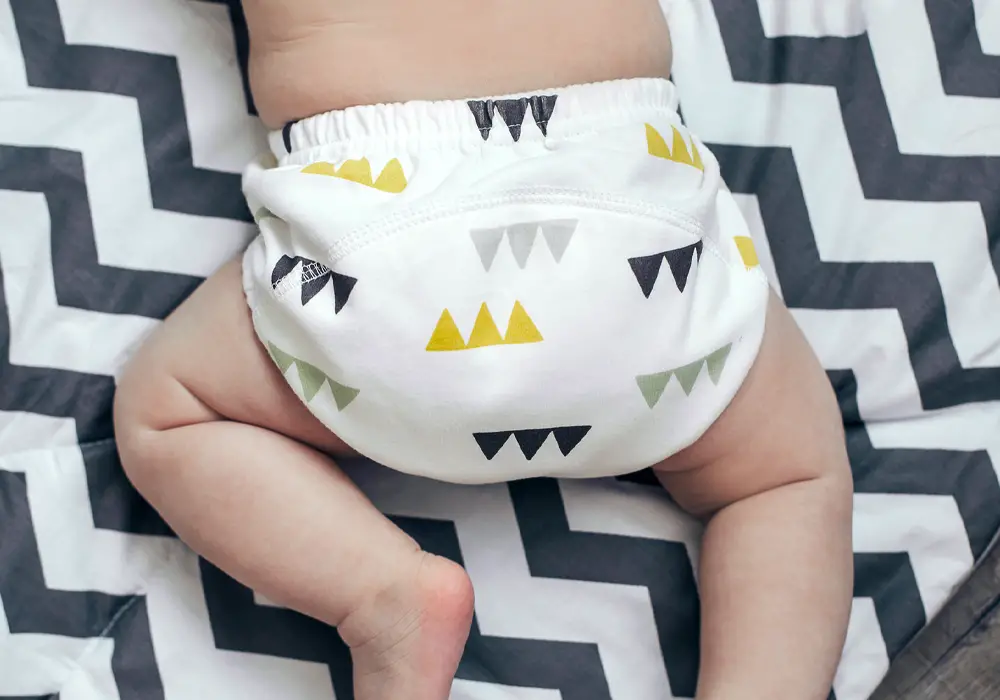
While old-fashioned cloth diapers were drab and tedious, modern cloth diapers come in all sorts of colors, patterns, and designs.
Plus, on those lovely sunny days when your baby is in nothing but a diaper, cloth diapers are an adorable accessory!
I remember days of my son crawling around outside in his bright orange or lime green FuzziBunz diapers that we used. If you’re into fashion, there are even designer cloth diapers out there for your little fashionista!
8. Cloth Diapers Support Early Potty Training
While each child is different and is going to potty train in his or her own time, there is some merit in saying that cloth diapers help with potty training.
Disposable diapers are engineered to pull moisture away and lock it in; that is one of their selling points and is excellent for a baby’s bottom.
However, if your child doesn’t feel the wetness, it is unlikely to be noticeable or bother them.
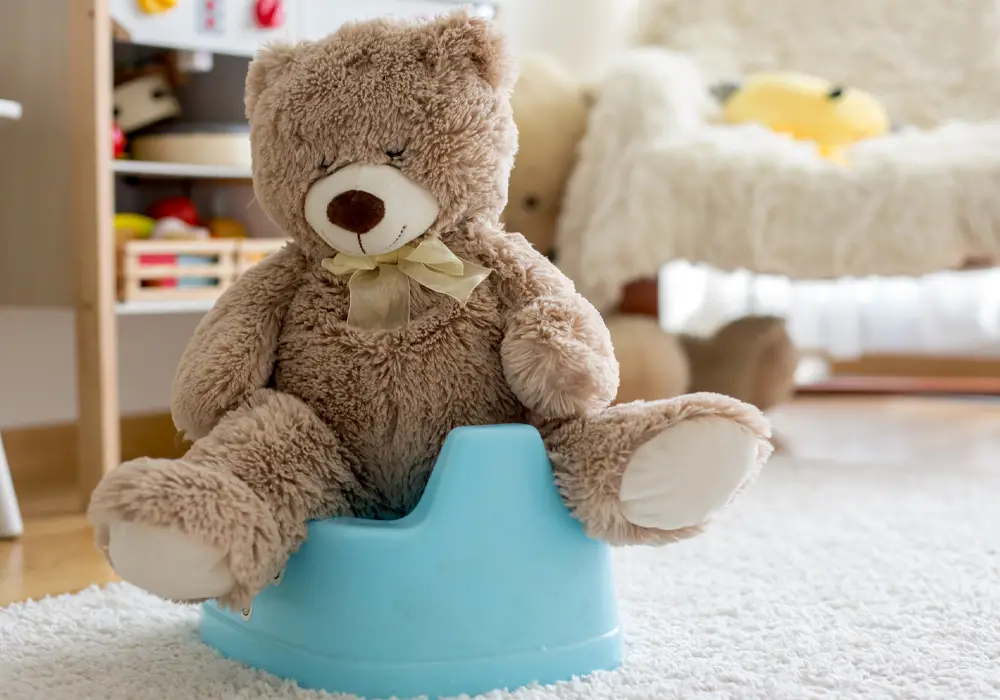
As children age into toddlers, they may dislike the sensation of being wet, and cloth diapers don’t mask the wetness the same way disposables do.
If your child receives that instant feedback of being wet or soiled, they might wish to transition to the potty sooner. Some moms swear their child was potty trained earlier because they used cloth diapers.
9. Cloth Diapers Are More Comfortable
Cloth diapers naturally provide better airflow and ventilation than disposable diapers. Disposables are made to be non-porous, while many of the fabrics used for disposables are breathable and light.
This, for some parents, is one of the top reasons to cloth diapering their baby.
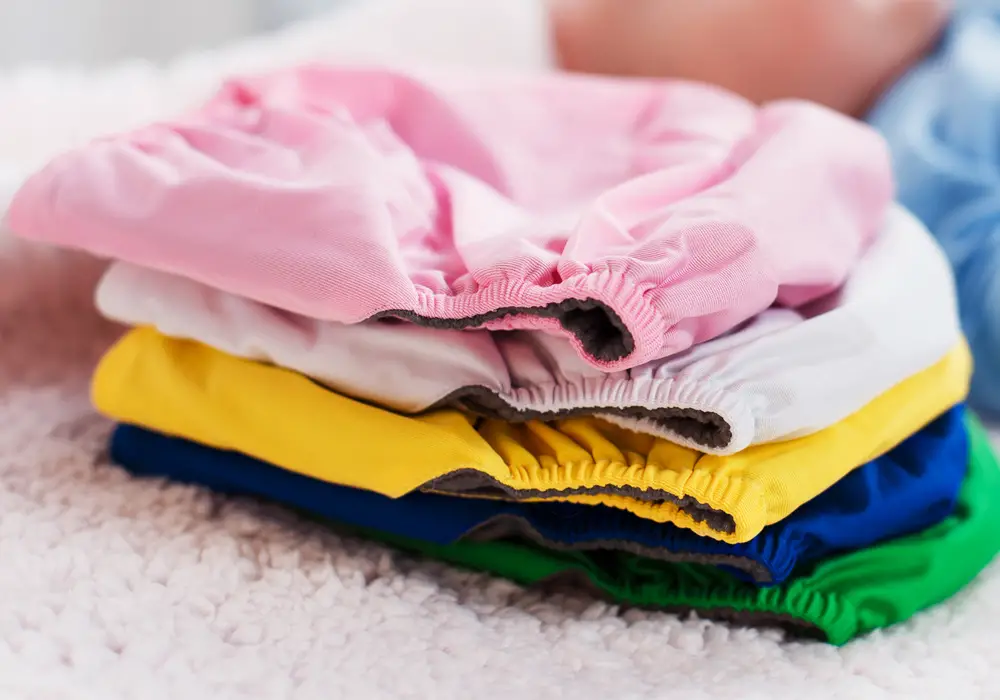
When you use cloth diapers, you are likely to change your baby’s diaper more often, which is another reason they are more comfortable.
More frequent diaper changes mean less time sitting in wet or soiled diapers, which, I would assume, has to be more comfortable!
Since our babies can’t speak and tell us what is comfortable or not, we have to go by their signals and what we know of comfort. If you are thinking about cloth diapers as an option, comfort should be one of the pros.
10. You Never Run Out of Diapers
If you are using reusable diapers, you will never run out; that is as long as you remember to wash them! Nothing is more dreaded than running out of diapers!
Due to all types of logistics, with my second son, but mainly because I didn’t have a washer, I used disposables.
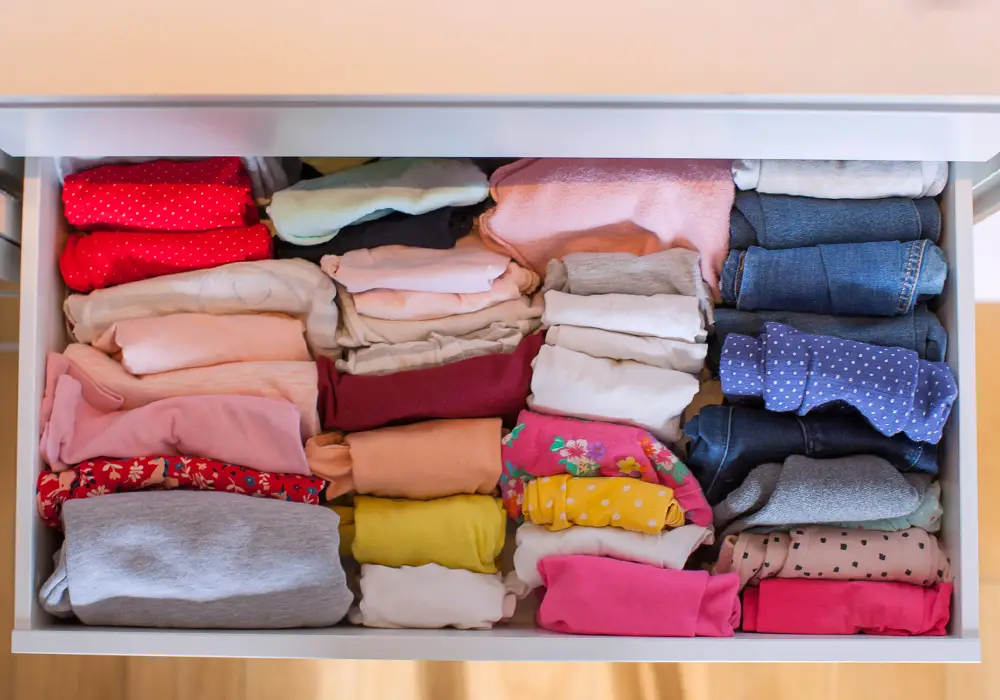
I remember running out one day because of “mom brain fog,” and it was a nightmare! I had to pack a newly-minted three-year-old and a baby into the car for a run to the store!
If I had more information on cloth diapers, like understanding what a diapering service was and that it was affordable, I wouldn’t have been in that situation.
Washing your cloth diapers every other day will keep your clean diaper supply stocked.
11. Cloth Diapers Catch More Blowouts
This is true! My oldest wore cloth at home, but his childcare would only use disposables (this is common, unfortunately).
As a toddler had blowouts all the time at school but had hardly any home. I would definitely recommend using a cloth diaper for toddlers.
Most cloth diapers have small elastic bands in the leg holes that can be adjusted based on your baby’s size. When these bands fit correctly, it provides a lot of protection against messy blowouts.
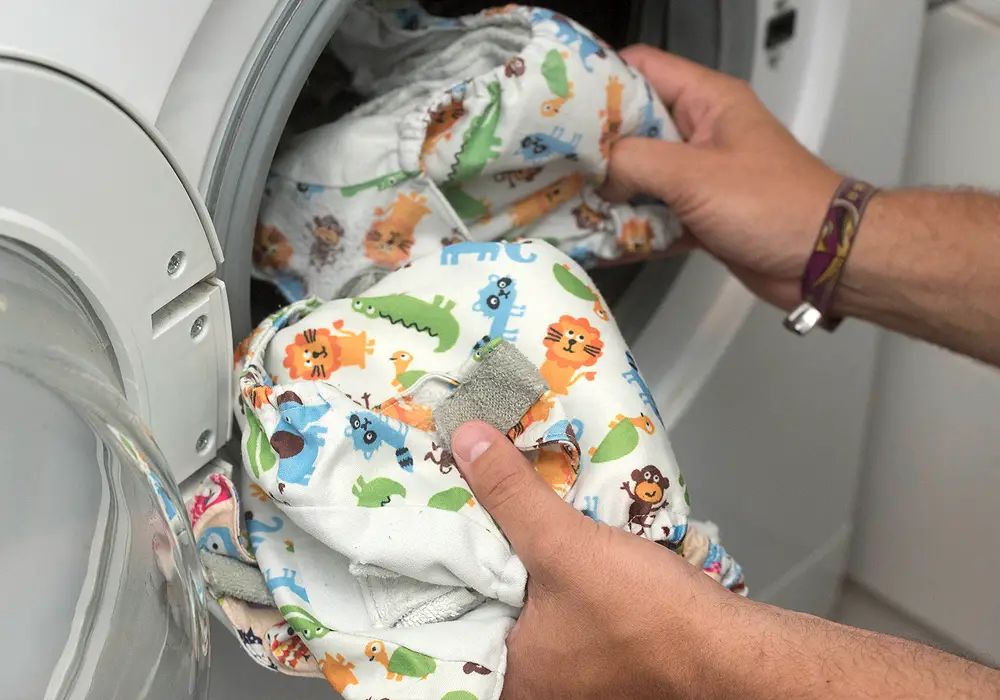
Protecting your baby from blowouts also protects your baby’s clothes! You already do enough laundry; why add more into the mix?
This wonderful piece of cloth diaper science was a great addition to the diapering world.
If you use prefolds, which do not have elastic, there are many ways to ensure you get a snug fit to protect against messy changes.
12. Cloth Diapers May Protect Baby Boys’ Privates
A study performed in Germany included 48 healthy males from ages birth through forty-two months. The team used a small probe to record each participant’s scrotal temperature over two different 24-hour periods. (3)
During one of the 24-hour periods, the boys wore plastic disposable diapers; they wore reusable cotton diapers during the other.
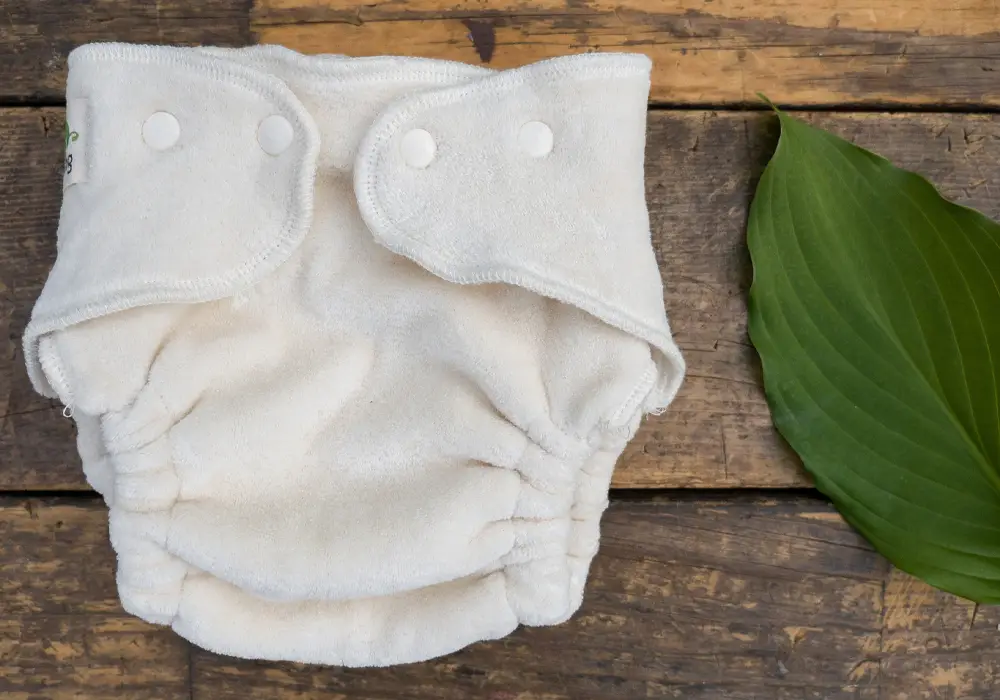
The study showed that the temperature was consistently higher during the 24 hours when they wore the disposable diaper.
So what does this mean? Science has already shown strong evidence that males whose privates are exposed to high temperatures for prolonged periods show decreased sperm count, which means decreased fertility.
One reason behind this is that some males have testicles that don’t descend at an average age, leading to increased heat in the region. To avoid this, just pick the best cloth diapers for boys.
13. The Solid Waste Ends Up in the Right Place
When you use cloth diapers, the waste goes in the toilet and through the sewage system as it should. With disposable diapers, the waste is put into the ground and can leak into the soil and water.
Dirty diapers carry many germs with them, including many contagious illnesses like salmonella, E.coli, norovirus, and listeria. These germs can even be found in the diaper of a healthy child. (4)

There is a reason childcare centers have such strict diaper changing policies to prevent illnesses from spreading, so why would we want to dump all this into the ground?
Water used in our toilets and washing machines goes through a cleaning process to remove harmful impurities. It is much more environmentally friendly and safer to dispose of waste down the toilet drain.
14. Cloth Diapers Can Have Multiple Uses
The most obvious re-use for your cloth diapers is to save them for your next baby, or you could sell them second-hand and make some of your initial investment back. But there are other cloth diaper savings as well!
You can always give away your cloth diapers to a close friend or family member as well, helping another new parent save money. You may also be able to donate them to a resale shop.
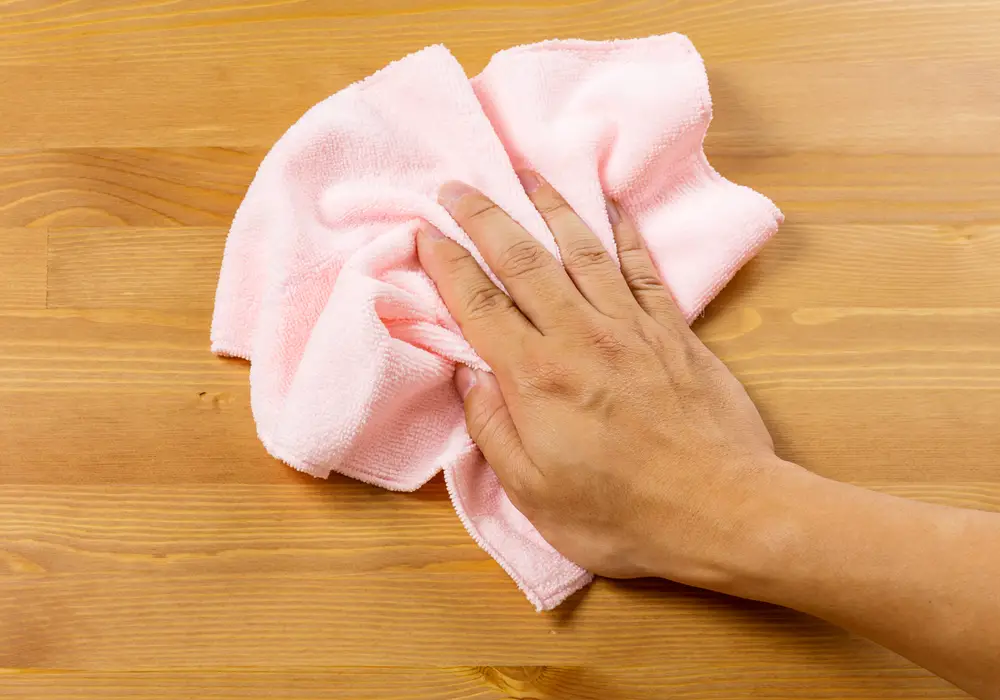
Prefolds can easily be used as rags for cleaning and dusting once your child outgrows them.
Prefolds can also double as burp cloths while you are using them or to clean up spills! If you know how to sew, you can turn them into bibs as well.
You can always give away your cloth diapers to a close friend or family member as well, helping another new parent save money. You may also be able to donate them to a resale shop.
15. You Can Always Use A Diaper Service
I wish I had done more research into cloth diapering services and seen that they would have saved me money or at least come even with disposables.
I thought I couldn’t use the cloth diapers I had for my first because we moved to a new city, and I no longer had my own washing machine. I ended up giving my cloth diapers away to a friend.

A cloth diaper service is an excellent option if you don’t have your own washer or don’t have the time to do all that laundry.
They pick up your soiled diapers every few days on schedule and leave you with fresh, clean, sanitized ones. You can find a cloth diaper service in your area through a simple internet search.
The average cost around the U.S. is $18-$24 a week.
FAQ
Do you really save money using cloth diapers?
Yes, the lifetime cost of disposables is between $2,000 – $3,000. The lifetime cost for cloth is $600 – $1000. If you use them for a second child, the savings are even more significant.
What are the benefits of cloth diapers?
They are more environmentally friendly, cheaper, better for your baby’s bottom, have fewer leaks, are cuter, and may help your child potty train faster.
What are the disadvantages of using cloth diapers?
The cost upfront is high; you’ll be doing A LOT of laundry, you cannot use diaper creams, and many childcare centers won’t use them.
Why are cloth diapers better?
They are made from natural materials and help the planet by not depositing harmful chemicals and waste into the soil. They probably feel nicer on your baby’s bottom too!
Are cloth diapers really worth it?
In my opinion, yes, but only you can decide that for yourself. Consider what’s important to you and if cloth diapers fit that lifestyle; they aren’t for everyone.
How long do cloth diapers last?
In theory, they can last years. But like other clothing, the more you wash them, the more wear and tear they will have. The elastic bands can last roughly three years, and you can replace them yourself.

L. Elizabeth Forry
L. Elizabeth Forry is an Early Childhood Educator with fifteen years of classroom teaching experience. She earned a Master of Science in Early Childhood Education from The University of North Dakota and has a Bachelor of Arts in English and one in Music from Lebanon Valley College. She has taught children in Japan, Washington D.C., Chicago, and suburban Maryland. She is trained as a reading therapist, has a TEFL certification, and has done extensive work with children regarding mental health, social-emotional development, and gender development. She has written curriculum for children and educators and has led training sessions for parents and educators on various topics on early childhood development. She is the mother of two boys and resides outside of Annapolis, Maryland.

![10 Best Diapers for Blowouts in 2024 [That Actually Work]](https://parentingmode.com/wp-content/uploads/2022/05/Depositphotos_443800544_S-768x554.jpg)
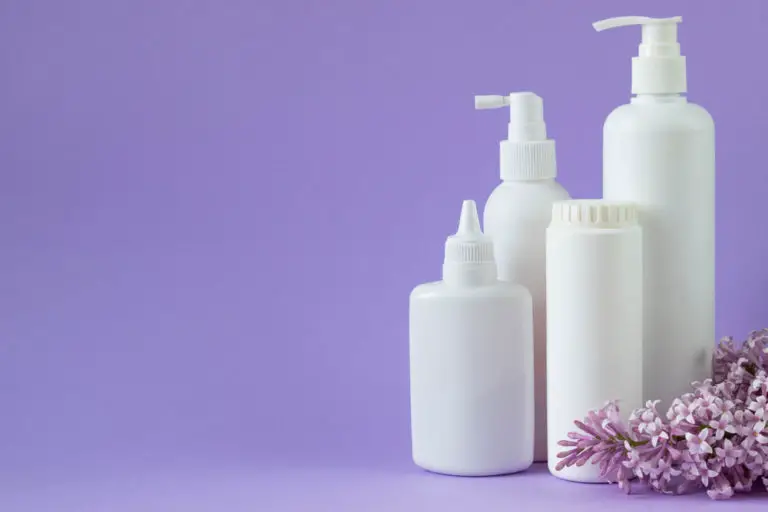
![10 Best Diapers for Boys in 2024 [That Don’t Leak]](https://parentingmode.com/wp-content/uploads/2022/05/Depositphotos_77222065_S-768x512.jpg)
![12 Best Natural Diapers in 2024 [Chemical-Free and Safe]](https://parentingmode.com/wp-content/uploads/2022/06/Depositphotos_108876360_S-768x512.jpg)
